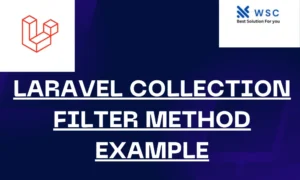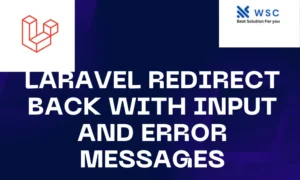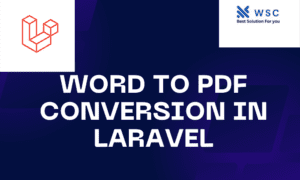Introduction:
Laravel, a popular PHP framework, is known for its simplicity and elegance in building web applications. With each new version, Laravel introduces new features and improvements to enhance developers’ productivity and code readability. In Laravel 11, a new helper function called once() has been introduced, offering developers a convenient way to execute a code block only once during the application’s lifecycle. In this article, we’ll delve into the once() helper function, understand its purpose, and explore practical examples to demonstrate its usage.
Understanding the once() Helper Function: The once() helper function in Laravel 11 allows developers to execute a specific code block only once, regardless of how many times it is called. This can be useful in scenarios where you want to perform initialization tasks, register services, or set up configurations that should only occur once during the application’s runtime.
Practical Example:
Let’s illustrate the usage of the once() helper function with a practical example. Suppose we have a Laravel application where we need to initialize a configuration setting only once when the application starts.
// app/Providers/AppServiceProvider.php
namespace App\Providers;
use Illuminate\Support\ServiceProvider;
class AppServiceProvider extends ServiceProvider
{
public function boot()
{
once(function () {
// Perform initialization tasks here
config(['app.initialized' => true]);
});
}
}
In this example, we’re using the once() helper function within the boot() method of the AppServiceProvider. Inside the once() function, we define a callback that contains the initialization tasks we want to perform. In this case, we’re setting a configuration value app.initialized to true.
Now, let’s see how we can access this configuration value from other parts of our application:
// Anywhere in your application
$isInitialized = config('app.initialized');
if ($isInitialized) {
// Configuration has been initialized
} else {
// Configuration has not been initialized
}
By using the once() helper function, we ensure that the initialization tasks are executed only once, regardless of how many times the AppServiceProvider is booted during the application’s lifecycle.
Conclusion:
The once() helper function introduced in Laravel 11 provides developers with a convenient way to execute code blocks only once, simplifying initialization tasks and improving code readability. By understanding its purpose and usage, developers can leverage this feature to optimize their Laravel applications effectively. Incorporating the once() helper function into your codebase can lead to cleaner, more efficient application logic, ultimately enhancing the development experience and the overall quality of your Laravel projects.
- Check our tools small Tools
- Check our tools website Word count




